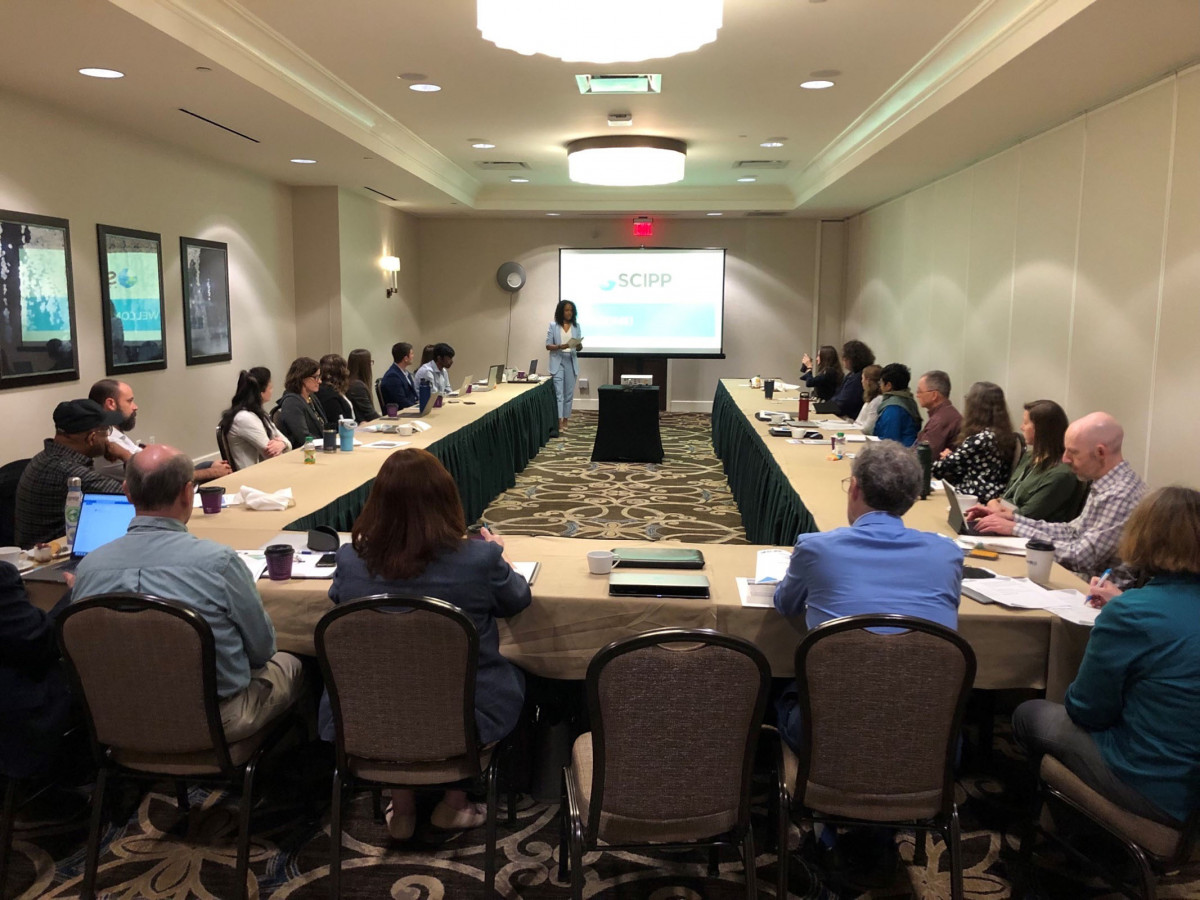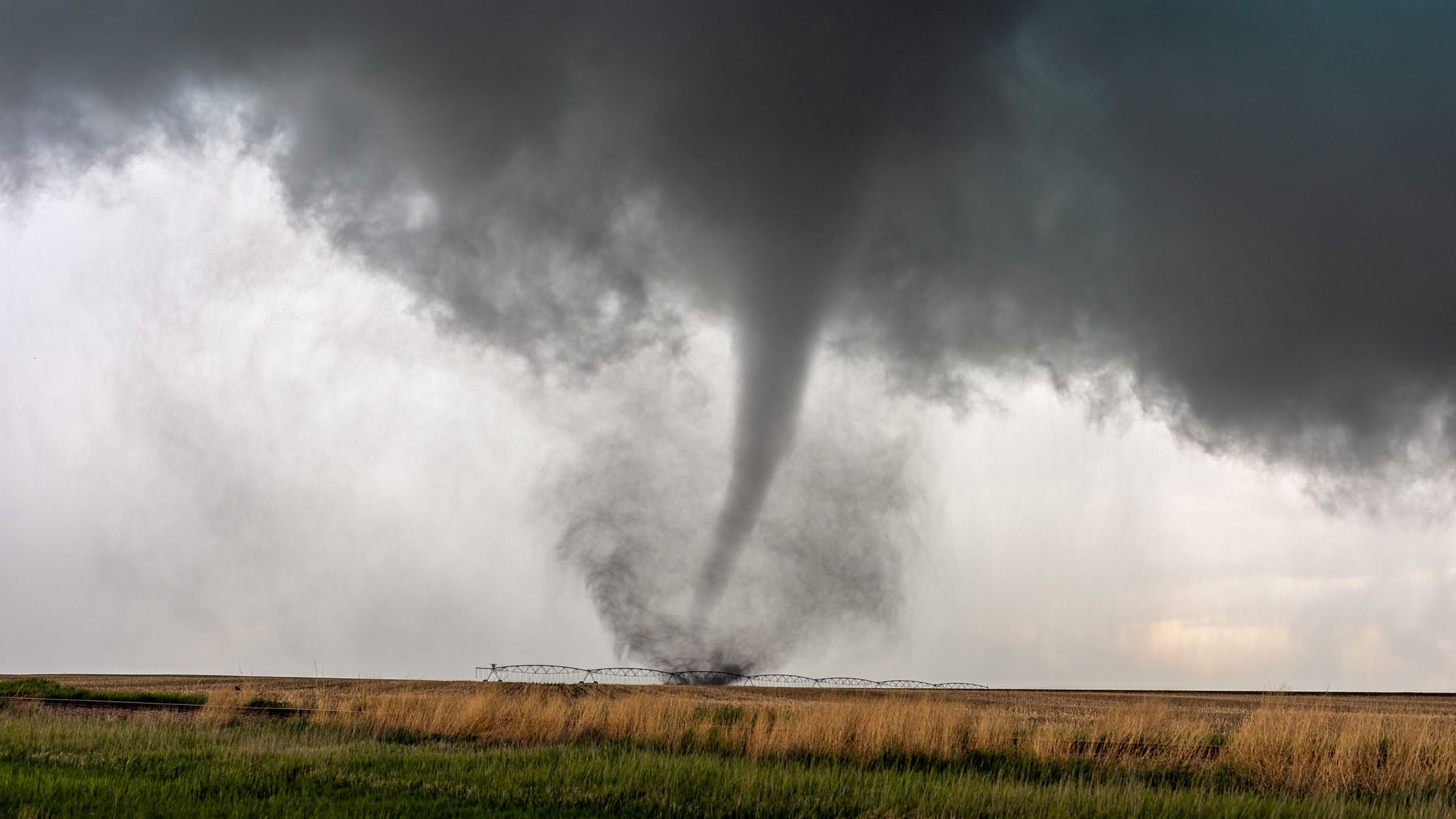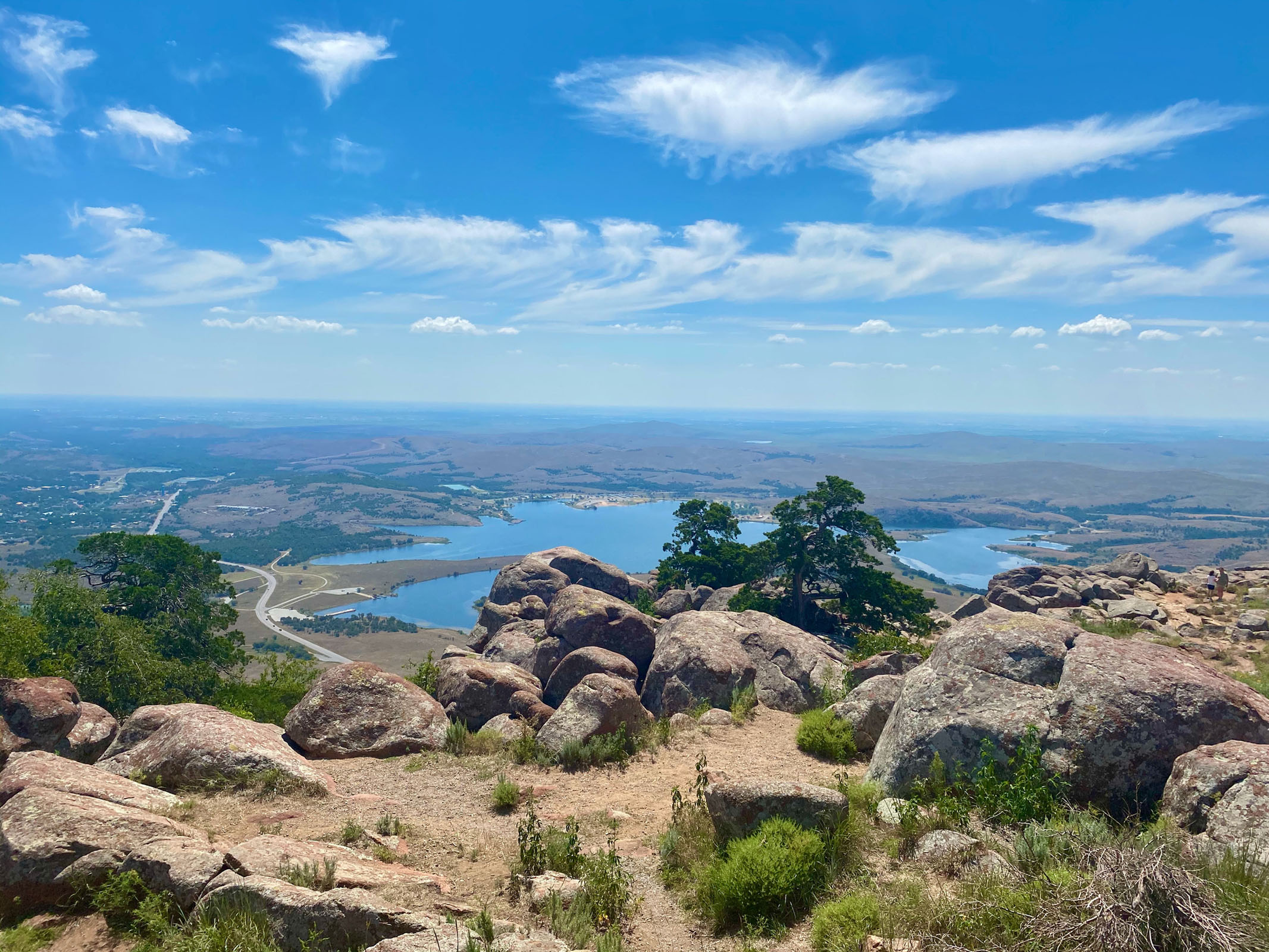
Helping communities and organizations in the South Central U.S. assess and address their weather and climate risks and impacts
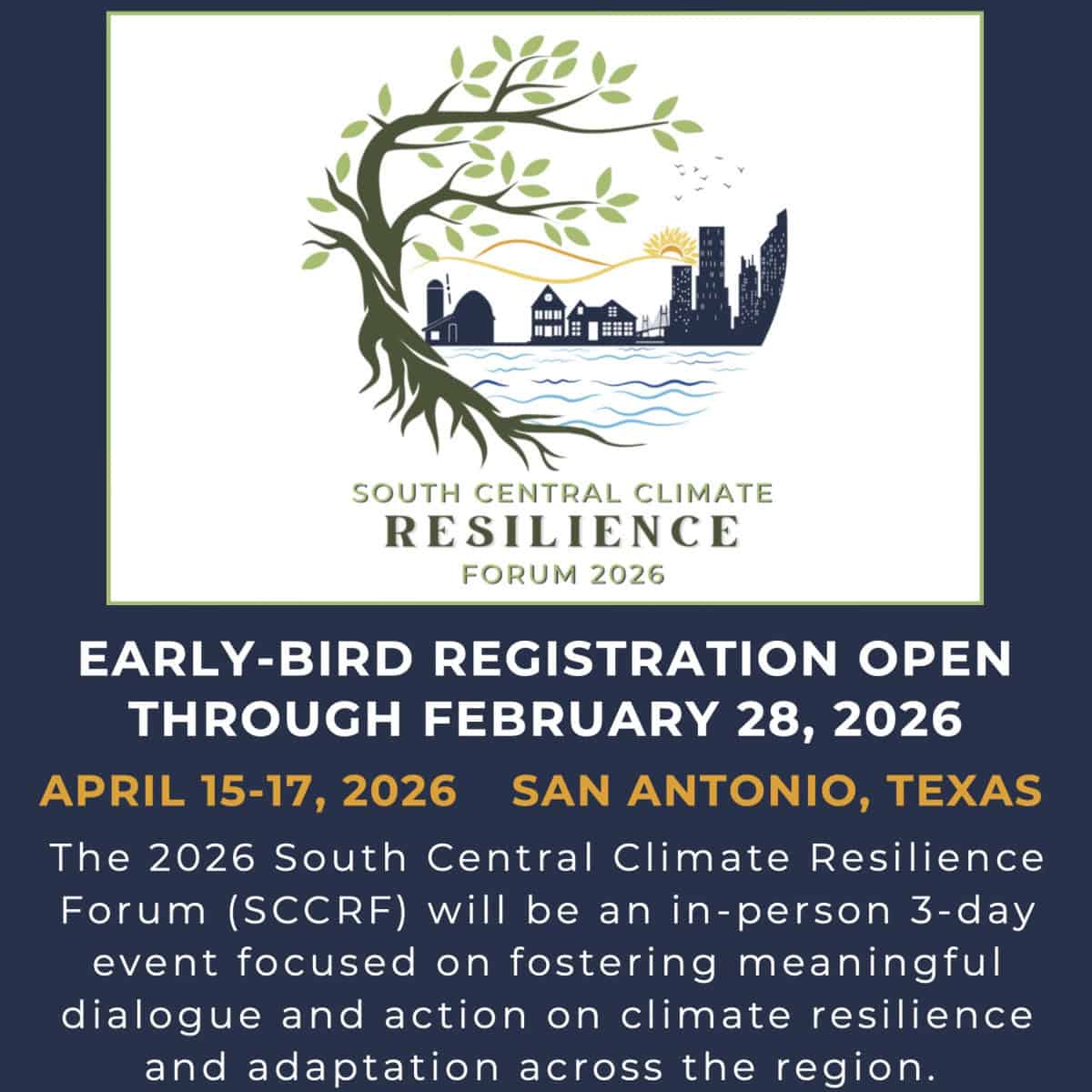
2026 South Central Climate Resilience Forum
We are excited to announce that the 2026 South Central Climate Resilience Forum (SCCRF) will be held from April 15th-17th, 2026, in San Antonio, TX. The Forum will bring together representatives from non-profit organizations, all levels of government, community groups, the private sector, and academia from Arkansas, Kansas, Louisiana, Oklahoma, and Texas to improve understanding of the climate-related challenges. Early-bird registration is open through February 28th, 2026.
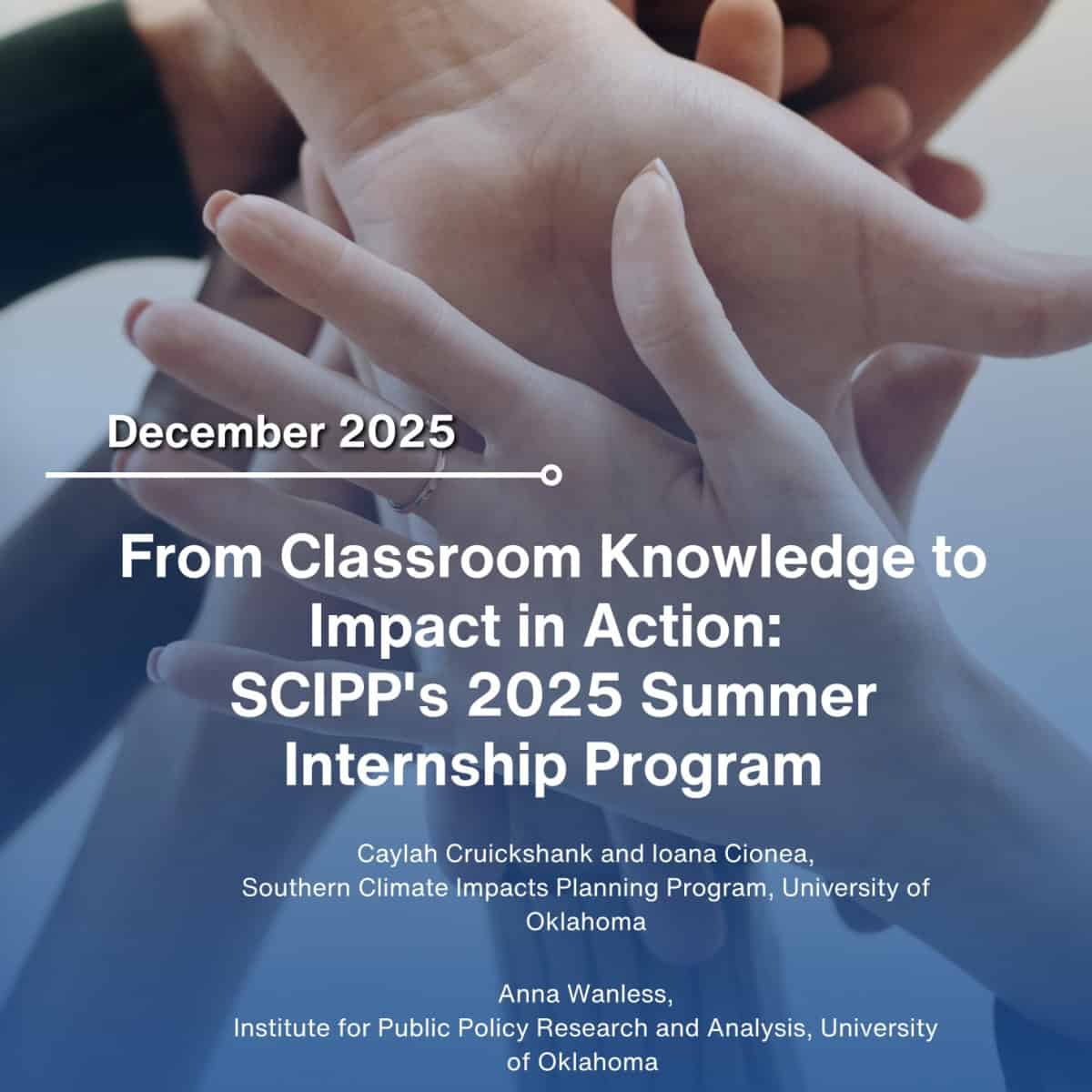
New Summer Internship Summary Report
This report provides a summary of SCIPP’s 2025 Summer Internship Program’s participants, procedures, early outcomes, and recommendations. It highlights data collected from both the interns and the host organizations.
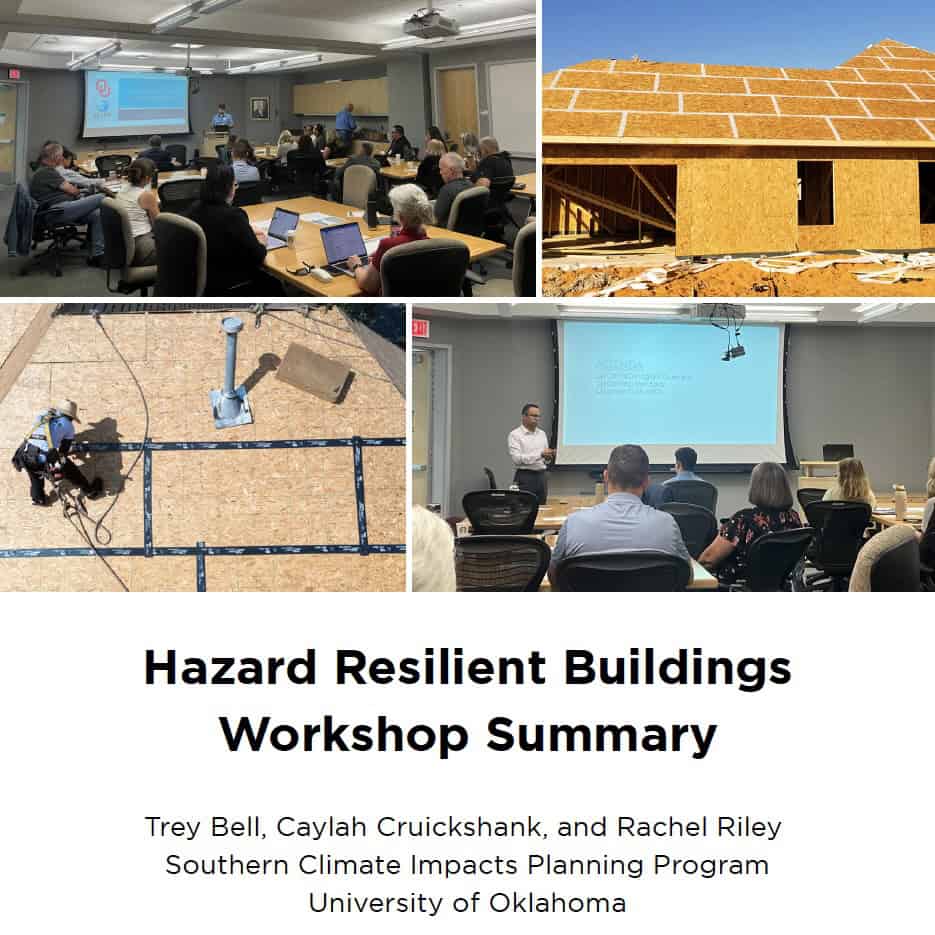
New Hazard Resilient Buildings Workshop Summary
The full summary report of the SCIPP Hazard Resilient Buildings Workshop is now available. This report highlights numerous recommendations from members of the home builder, insurance, and real estate industries to improve the resilience of homes to severe weather hazards commonly seen in central Oklahoma.
Forward-thinking leaders need accurate and timely climate data and information to protect their communities. Knowing what’s coming and how to respond allows for informed decisions that prevent impact and reduce risk.
The South-Central United States is one of the most disaster-prone regions in the country, frequently experiencing billion-dollar climate disasters. Some of these weather events are becoming more frequent and more extreme, harming people and property in their wake. Costs of these events are also increasing, negatively impacting economies.
It can be overwhelming to sort through the resources that would help to lessen the impact of climate-related disasters.
At SCIPP, our mission is to help you help your communities by giving you a trusted source of information. We empower leaders by providing climate analyses and information that are relevant, accessible, and actionable. We engage with leaders such as yourself to ensure that our research meets the needs of real people like you.
As an interdisciplinary team with a focus on climate-centric research, we know just how much is at stake. It is incredibly difficult to make big decisions that impact real lives while also navigating bureaucratic priorities.
As an influential decision-maker, you deserve to feel confident you’re making smart choices that will make your community a better, safer place to live. Since 2008, we’ve been dedicated to helping communities navigate their unique weather and climate risks and challenges. As a NOAA-funded program affiliated with top universities in the region, SCIPP provides unbiased, reliable information when you need it.
SCIPP Newsletter
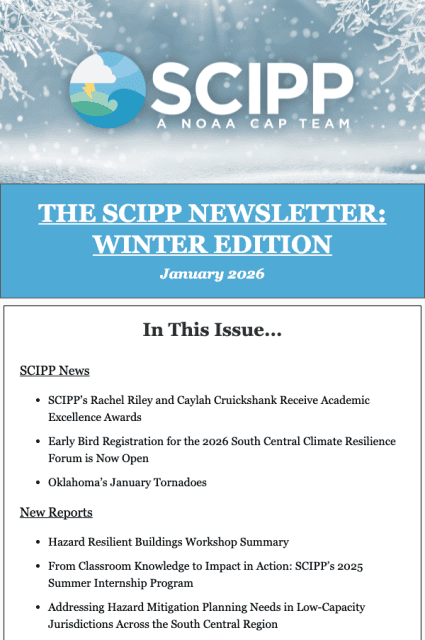
2026 Winter Newsletter
- Early Bird Registration for the 2026 South Central Climate Resilience Forum (SCCRF)
- Oklahoma’s January Tornadoes
- New SCIPP Reports
Webinars & Events

SCIPP sometimes hosts workshops and webinars on climate hazards and their impacts.
To receive updates about our work, please sign-up for our newsletter. Read about past webinars and events by clicking the link below.
Here’s how to make SCIPP’s research work for you:
Visit our resource library
Search and filter results by location or climate issue
Download relevant documents
Use the data to inform your decisions
Can’t find what you’re looking for? Get in touch to inquire about a co-produced study based on your needs.
Visit our free resource library now to get started. And be sure to subscribe to our newsletter to get breaking data about climate issues and events.
As an influential decision-maker, you deserve to feel confident you’re making smart choices that will make your community a better, safer place to live.

